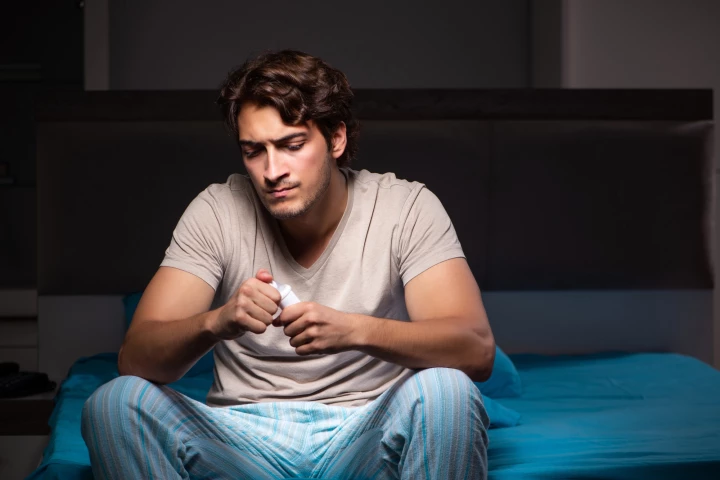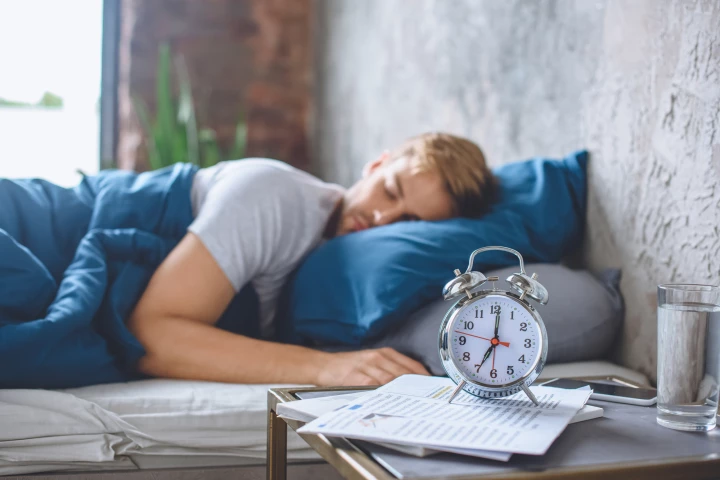Insomnia
-
In a study of newlywed couples, researchers found that depression and anxiety can be passed from one spouse to the other via the oral microbiome, which is transferred during close contact, such as kissing.
-
A sour, tangy cherry most commonly used in baking has a lot of new fans in 2025, celebrating its broad health benefits. We look into its purported ability to relieve pain, gout and gut inflammation, as well as lower blood pressure and promote sleep.
-
A new study of nearly 15,000 people found that the window of late-night workouts in which sleep is impacted is actually much larger than previously thought, showing that exercising within four hours of bedtime can have a detrimental effect on shut-eye.
-
Whether it's reading a book or putting on music, many of us have some kind of ritual – small or large – that we do to "wind down" in bed. But it can be hard to gauge how good or bad these activities are. Now for one popular pastime, we know more.
-
A new study has ranked the best types of exercise for improving sleep quality. The findings demonstrate that exercise is an easy-to-implement, relatively cheap, and particularly effective way of treating insomnia, a common problem for older adults.
-
Each night, our brains execute a "wash and rinse" routine that clears away harmful protein waste linked to neurodegenerative diseases like Alzheimer's. Now, new research shows that a common prescription sleep aid can disrupt this essential process.
-
New York might be known as the city that never sleeps, but it turns out there's a lot less shuteye happening in smaller urban areas across the globe. And it's not because of nightlife, but artificial light emitted from buildings and infrastructure.
-
For the first time, there's scientific evidence that a smaller, lesser known component of cannabis – cannabinol – delivers better quality and longer sleep. It proved to be comparable to existing sleep aids, without the undesirable side effects.
-
Melatonin is already a popular supplement for those who struggle to get a solid night's sleep. But the dosage of the supplement and the best time to take it has remained largely a trial-and-error endeavor. A new study puts that uncertainty to bed.
-
Using a weighted blanket overnight not only improves insomnia but mood as well, in addition to reducing the use of sleep medications, a review of existing studies has found. It’s an effective, non-drug way of improving sleep to ensure better overall health.
-
'Night owls' get a bit of a rough time of it, with staying up late linked to a host of poor health outcomes. And, in a world where work hours favor early risers, late-night folk can feel a little out of step with society. Well, we have some good news.
-
A popular pill that assists with shut-eye may also help preserve those eyes, with a new study linking melatonin and the slowing of age-related macular degeneration. It's part of a growing body of research into the sight-protecting power of melatonin.
Load More











